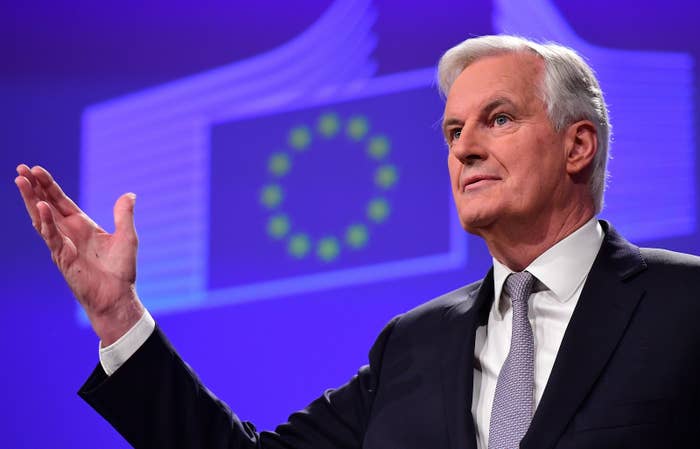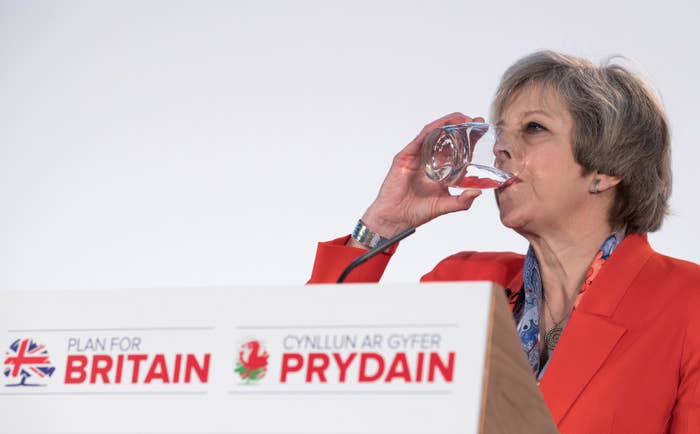
The European Union's chief Brexit negotiator has said that negotiations with the UK cannot take place in secret, in his first major speech since Theresa May set a date to trigger Article 50.
Speaking before the Committee of the Regions in Brussels on Wednesday, Michel Barnier said the EU would "negotiate in a transparent and open manner, explaining to everyone what we are doing". "We need to tell the truth to our citizens about what Brexit means," he added.
Having consulted all of Europe's capitals, Barnier also emphasised that the EU27 will explain their positions "every step of the way" to their parliaments, the public, and civil society.
The EU's stance is likely to cause some friction with Number 10 and UK officials who have consistently argued against providing a detailed "running commentary" on the upcoming talks for fear of revealing Britain's negotiating hand.

During a wide-ranging speech, Barnier also set to spell out the running order of negotiations as well as the necessary conditions for reaching an agreement.
As reported by BuzzFeed News last week, the EU's chief negotiator confirmed the matters the EU and its 27 member states wanted to address early in the negotiations. They include:
– sorting out the rights of EU nationals in the UK (as well as those of Britons living elsewhere in the EU);
– issues relating to budgetary commitments;
– finding a solution to the challenge posed by potential border issues between Northern Ireland and the Republic Ireland.
Talking about the rights of EU citizens, Bernier acknowledged that the issue was complex and would take several months to sort out, but said ending the current state of uncertainty for up to 4 million people should be a priority for both the EU and the UK.
"Our watchword will be citizens first," he said.
Referring to issues such as residency rights, access to the labour market, pension or social security rights, and access to education, Barnier continued: “We will work methodically on each of these points. We will not leave any detail untouched, and we are already working with all Member States on this."
"It will take time, several months certainly," he added. "We must do serious legal work on this with the United Kingdom. But we can and we should agree – as soon as possible – on the principles of continuity, reciprocity and nondiscrimination so as not to leave these citizens in a situation of uncertainty."
One of the most contentious issues during the initial stages of talks is likely to be agreement on the so-called Brexit bill, with prominent Brexiteers dismissing suggestions the UK's dues could amount to €50 billion.
Exclusive: Brexiteer members of the Cabinet want EU "divorce bill" to be no more than £2/3 Bn - EU want £50 Bn https://t.co/038aKdggyK
It is understood that Brussels wants the scope of initial discussions not to fixate on a number but instead for there to be an understanding on how to calculate the bill, and over what period of time the UK would settle it.
In his speech, Barnier took time to explain the issue in question wasn’t an exit bill but funding for programmes that had been approved by all member states, including the UK.
“Each country must honour its commitments to each other," he said. "When a country leaves the Union, there is no punishment. There is no price to pay to leave. But we must settle the accounts. We will not ask the British to pay a single euro for something they have not agreed to as a member.
"In the same way, the 27 will also honour their commitments concerning the United Kingdom, its citizens, companies and regions. This is the mutually responsible way to act."
Citing Winston Churchill, Barnier added that "the price of greatness is responsibility".
Talking about the uncertainty raised along the border with Ireland by the UK's decision to leave the customs union, Barnier said the EU would be particularly attentive during negotiations to anything that may weaken dialogue and peace.
Despite warning that a new partnership will never generate the same benefits as EU membership, Barnier anticipated that market access and trading would continue, but said the UK-EU relationship would need to be based on a level playing field.
Directly addressing suggestions in the UK that no deal would be better than a bad deal, he issued a warning of the “serious consequences” for Britain leaving without agreement: "the reintroduction of binding customs controls, which will inevitably slow down trade and lead to queues of trucks at Dover; serious disruption to air traffic; an overnight suspension in the movement of nuclear materials to the UK,” Barnier said.
The EU's chief negotiator suggested that transitional arrangements may be needed if a final deal isn't reached within the two years set out by the Article 50 process. He stressed that any such interim measures would need to be within the framework of EU law, and the UK would not be allowed to unpick the single market even on a temporary basis.
Barnier also called for a continued framework for EU-UK cooperation on security and defence, and reaffirmed that unity among the EU27 would be the primary condition of any deal.
Earlier this week, prime minister May announced that she would trigger Article 50, the formal process to begin the two-year exit procedures, on 29 March.
After an initial response some 48 hours later, the EU27 will meet in Brussels on 29 April to agree their negotiating position. Negotiations proper are then expected to begin about a month after that.
